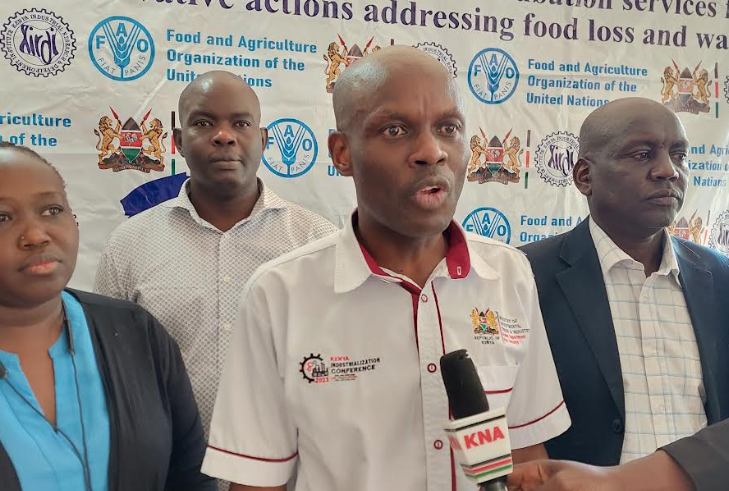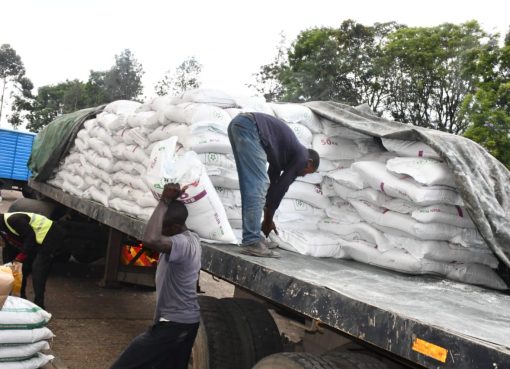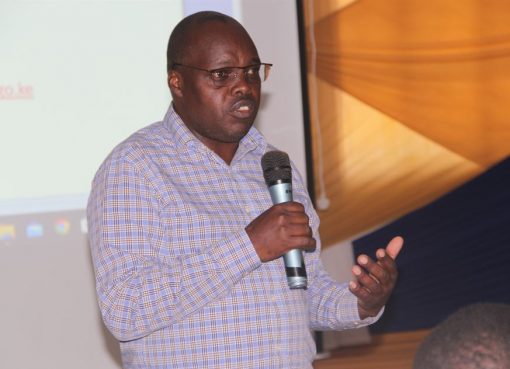The Kenya Industrial Research and Development Institute (KIRDI) has partnered with the Food and Agriculture Organisation (FAO) to combat food loss and waste in the country.
This follows concerns over high post-harvest losses and food wastage at household level which threatened the country’s food security and economic development.
Through the partnership, Micro and Small Enterprises (MSME’s) working on different agriculture value chains are being trained on different technologies and innovations to curb post-harvest losses and at the same add value to their produce to reap maximum benefits.
The training focuses on practical applications of technologies such as solar drying, hermetic storage, and cold chain systems, which are essential in preserving agricultural produce.
Participants are also being introduced to waste-to-value innovations, enabling them to convert food waste into usable byproducts like animal feed or organic fertilisers.
KIRDI Director General (DG) Dr Calvin Onyango said the initiative targets fruits and vegetables, cereals, dairy and fish to slash the country’s average post-harvest losses, estimated at 30%, down to zero.
Speaking at KIRDI Kisumu center during the launch of the first round of the training, Dr Onyango said 20 MSME’s drawn from across the country were being given hands-on training at the agency’s laboratories and incubation facilities on the latest agro processing technologies, to build their capacity to reduce post-harvest losses and food waste from 30% to zero.
“A lot of food is lost at farm level. The goal of this training which is both practical and theoretical is to ensure that we reduce this to zero so that everybody can have sufficient food in the country,” he said.
This, he said, was in line with the government’s Bottom Up Economic Transformation Agenda (BETA) and was expected to have a ripple effect on small scale farmers to boost food security in the country.
“We are empowering MSMEs with tailored solutions in post-harvest handling, storage, and value addition. By reducing losses to zero, we not only safeguard food security but also boost incomes for small-scale farmers and entrepreneurs,” he said.
FAO representative Winnie Yegon said the organisation had signed a Memorandum of Understanding (MoU) with the Ministries of Agriculture, Environment and Health to roll out the program.
Food loss and waste, she said, was a big concern which touched the three ministries adding that FAO has released funds to KIRDI to conduct the training which is expected to reverse the tide.
This, she said, was a critical step toward achieving Kenya’s food security goals, aligning with global efforts to reduce food loss under the UN’s Sustainable Development Goals (SDGs).
“By building the capacity of MSMEs and enhancing their access to technology, the KIRDI-FAO initiative promises not only to mitigate food loss but also to foster a resilient and sustainable food value chain across Kenya,” she said.
Arnold Adero, one of the beneficiaries of the training on Omena value chain said the innovations being championed by KIRDI were critical in boosting trade for the commodity and food security.
Omena, he said accounts for 42% of the fish caught in Lake Victoria but fishermen were facing losses of up to 50%-70% due to poor handling, lack of cold storage facilities and negative weather conditions.
“Through this programme we are emulating new ways to work with omena to slash the huge losses to zero,” he said.
Christine Nyaga, a farmer from Embu County said farmers were grappling with huge losses of fruits and vegetables since they are highly perishable.
The training, she added, was an eye opener and will enhance access to new technologies to address post-harvest losses while scaling up value addition to guarantee farmers regular income.
By Chris Mahandara




